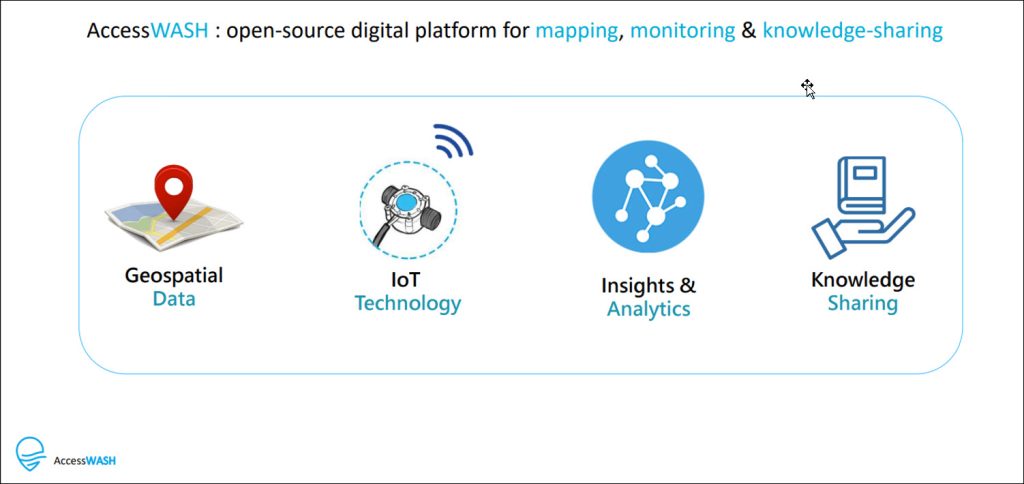
Summary
Over the last two decades, there has been concerted effort around the world to improve access to clean water and sanitation in accordance with UN SDG 6 goals. This has seen governments and non-governmental organizations prioritize the implementation of water, sanitation and hygiene (WASH)
projects. Having water and sanitation as a key area of focus, Rotary is at the fore-front of this cause, championing access to clean water, better sanitation and hygiene for all.
Although Rotary has over the years funded and implemented thousands of WASH projects globally, monitoring the status (active / inactive) and usage of these facilities still remains a challenge. More often than not, once WASH facilities or interventions have been commissioned, follow-up monitoring
and evaluation is seldom done, and if done, it is barely sustained in the monthsthat follow. This makes it difficult to empirical determine whether or not the WASH facilities or interventions are achieving the intended outcomes and positively impacting society. Often, there is not enough data needed to
make crucial decisions, strategy changes or course-correction so as to achieve the intended goals.
Consequently, many WASH interventions end up not being impactful and WASH facilities, some costing millions of dollars, end up not being used at all, barely months after their commissioning.
To solve this, I proposal to setting up an open access digital platform (AccessWASH) which: (1) maps all WASH facilities commissioned by Rotary, governments and other organizations; (2) tracks the active status and usage of these facilities; and (3) visualizes access (population vs facilities available and WASH organizations active) to quickly inform on gaps and underserved areas. AccessWASH will also act as a knowledge hub for stakeholders where WASH practitioners and organizations can showcase their work and share knowledge on best practices in WASH.
Upon successful implementation of AccessWASH, it is expected that stakeholders will be able to visualize where WASH facilities and interventions have been implemented and where gaps still exist.
With AccessWASH, donors and benefactors will be able to visibly see the impact of their contributions, whether it is setting up WASH facility or training on hygiene and the impact it has on the community served. Any anomalies (inactive WASH facilities or a sudden drop in usage) will quickly be picked up
by facility managers for further investigation and resolution.
Since AccessWASH is a digital platform (web application), its development, testing and implementation will be done by a team of 3: a full-stack software developer, a mobile developer and myself, WASH specialist, who will provide technical backstopping on matters WASH and strategy. To begin, a proof-of-concept (PoC) will be developed and tested. This will comprise of: (1) a web-application with a map module and knowledge hub module with resources on best practices in WASH,
and (2) a mobile application to facilitate on-ground mapping of WASH facilities. Development of the PoC is projected to take about 12 weeks. Thereafter, at least 50 WASH facilities implemented by Rotary D9212 in Kenya will be mapped using the mobile application and visualized on the map module in AccessWASH. Attribute information such as photo, activity status, people served etc. will all be displayed on the map in addition to other related layers e.g. population density, water sources, health facilities, schools, to mention but a few.
A budget of € 2.500 is needed to build, test and implement the PoC. This will cover the wages of the development team as well as the infrastructural and start-up costs.

